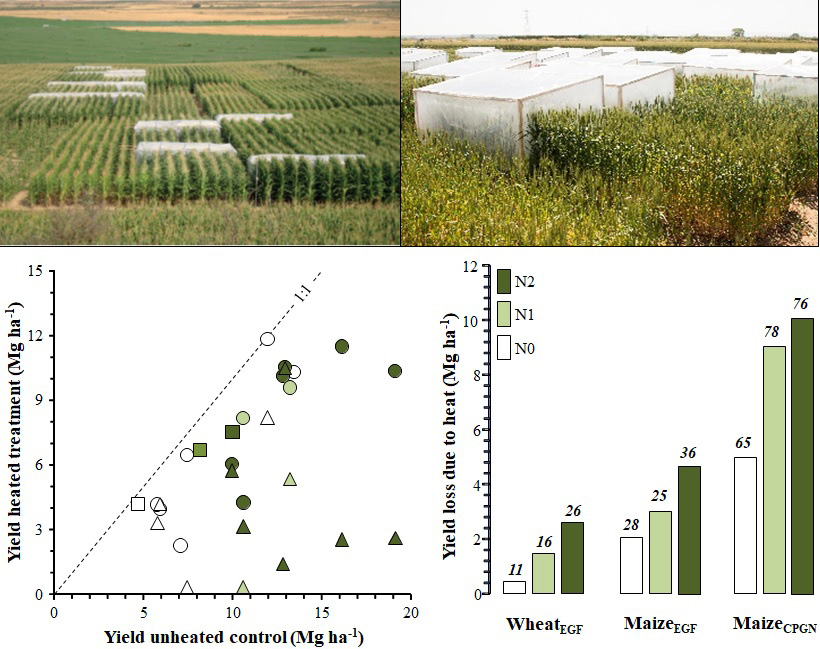To cope with increased food demand, crop yields must increase substantially within the next 2–3 decades. This must be achieved in a context in which crop management should be environmentally more sustainable, and when crops will be more frequently exposed to stressful conditions penalising their yields due to climate change. Deleterious effects of heat on crop yields are well documented and the occurrence of heat stresses will likely be a major constraint to achieving increased yields. Nitrogen (N) fertilization is within the most common management practices used in cereal production, however, there have been limited efforts to elucidate to what degree the level of soil fertility may affect the magnitude of the heat effect on crop yield. The likely interaction may be relevant for designing more appropriate fertilisation strategies. We conducted different studies on maize (2009–2012) and wheat (2012–2013), always under field conditions, to determine whether the availability of N may be responsible for the magnitude of the yield penalty imposed by heat stress. We showed for the first time that sensitivity to heat stress increased with increasing N availability and speculated that moderate N stress might produce in the crop plants a sort of acclimation to reduce sensitivity to other stresses. Fertilisation recommendations in the future may need to balance the yielding benefits of high N availability with the detrimental effect of increasing sensitivity to heat stress.
Reference
